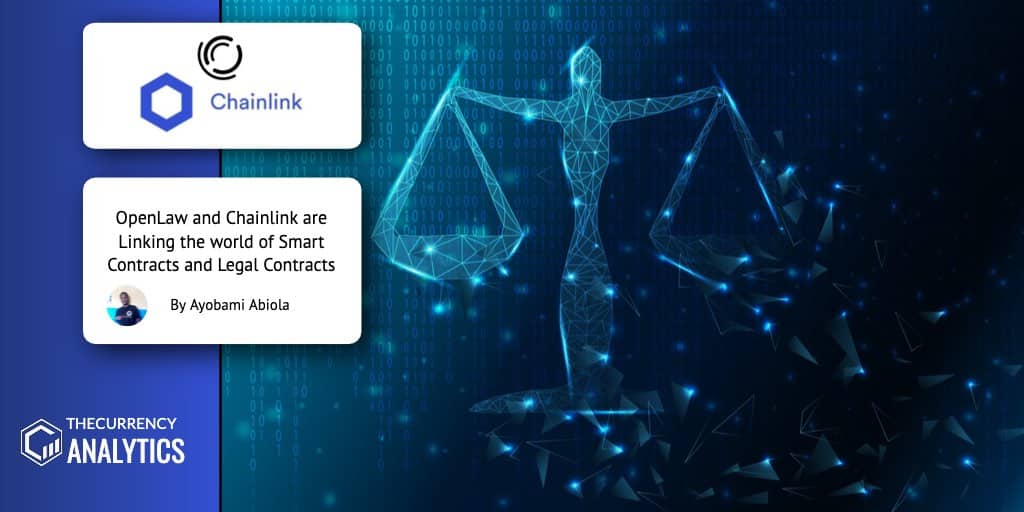
Smart Contracts are originally a replacement of paper contracts. Paper contracts require intermediaries to make them binding. But the beauty has always been that when a contract is binding, it can be enforced. Courts and law enforcement agencies can be used to enforce legal contracts and make sure agreeing parties remain faithful to their pledges. Smart contracts eliminate intermediaries, they connect agreeing parties seamlessly. The enforcer of smart contracts are codes and algorithms. But, aside from the codes, there are almost no legal backings for smart contracts.
Outside the online form, smart contracts might not be relevant in courts. Physical contracts take a lot of effort from developers to be converted to smart contracts. In many cases, it is impossible to convert paper contracts to smart contracts. There is, therefore, a disconnect between smart contracts and legal contracts. This is what Openlaw is solving in collaboration with Chainlink.
OpenLaw opens and bridges the disconnect between paper contracts and smart contracts. With OpenLaw it is possible to automate the conversion of paper contracts to smart contracts in just a few and simple steps. And more recently, with Chainlink it is now possible to automate the conversion of smart contracts to legal and binding documents. According to Aaron Wright, co-founder of OpenLaw, via Twitter:
“@OpenLawOfficial is bringing #ethereum smart contracts and #chainlink to the billion+ user Microsoft Office ecosystem… Smart contracts (and smart legal agreements) are evolving rapidly.”
Users can automatically generate agreements and save them in Dropbox, or any online storage service as a document which can be edited in Microsoft Word. Aaron also stated that data can be pulled from smart contracts and accessed with excel and Google sheets.
OpenLaw has opened a new era for smart contracts. It will now be easier to regulate on-chain contracts. Crypto Assets which are backed by real world assets can add a new layer of investor protection to them with OpenLaw. It will be harder to scam people since there is a legal document backing the issuance of a crypto asset.
Chainlink has brought its vision of connecting smart contracts to real world data sources to fulfillment and fruition in every sense of it. OpenLaw will be a very useful tool in the hands of the Security and Exchange Commission (SEC) of all countries and other enforcement agencies. It is also a call to all developers (especially start-ups) to add another layer of credibility to their projects. More credible project is what blockchain needs at this stage of its evolution, not scams denting its image.




Get the latest Crypto & Blockchain News in your inbox.